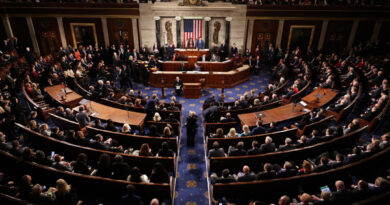Trump Administration Set to Address DEI Initiatives on Several Levels
Trump’s comments regarding diversity, equity, and inclusion initiatives indicate that his administration will seek to challenge these efforts both in government and in private entities.
News Analysis
President-elect Donald Trump has made statements and appointed individuals that suggest he aims to eliminate diversity, equity, and inclusion (DEI) programs within the federal government and to question their implementation in private sectors.
Based on his actions during his first term, it is expected that he might utilize executive orders to halt the promotion of DEI and critical race theory in federal agencies. He could reform education, prohibit diversity training in federal institutions, and have the Department of Justice (DOJ) file lawsuits concerning perceived reverse discrimination in hiring and college admissions.
Dhillon, who graduated from the University of Virginia School of Law and clerked for a judge on the U.S. Court of Appeals for the Fourth Circuit, leads the Dhillon Law Group and acted as a legal advisor for Trump’s 2020 presidential campaign.
Dhillon’s firm previously represented James Damore, the Google employee who claimed that the company held biases against white men and conservatives.
John Shu, a constitutional law expert who served in both Bush administrations, remarked to The Epoch Times that “Harmeet—if confirmed—would be the first Indian-American and Sikh American to serve as Assistant Attorney General of the Civil Rights Division. She is a highly experienced attorney who is deeply invested in America and its future.”
On the topic of DEI, he commented, “Harmeet will adhere to the law and existing Supreme Court rulings.”
Shu referenced U.S. Supreme Court Chief Justice John Roberts’s opinion in Parents Involved in Community Schools v. Seattle School District. No. 1, which scrutinized a school district’s choice to utilize race as a factor in student assignments.
Dhillon’s and Hegseth’s nominations emerged against a backdrop of controversies over such policies across corporations and governmental levels—federal, state, and local.
President Joe Biden promptly rescinded that executive order upon taking office in 2021.
Moreover, he pledged to cut federal funding for schools endorsing critical race theory and support school districts that adopt parental rights legislation featuring curriculum transparency.
The organization expressed concern that the Trump administration’s “ultimate aim would be the elimination of all initiatives meant to address severe and persistent inequalities in American society—resulting in further entrenchment and exacerbation of systemic disparities in access to education, healthcare, and opportunities in the economy.”
Specifically, it cautioned against Trump continuing alleged efforts from his first term to modify the enforcement of Title VI of the Civil Rights Act, which prohibits racial discrimination by federal funding recipients, by shifting focus away from cases demonstrating a “disparate impact” on certain groups.
Addressing DEI implications may require modifying executive systems and regulations—a task Trump is likely to undertake with guidance from his advisors at the proposed Department of Government Efficiency (DOGE), a presidential advisory body.
Overturning that precedent, by abolishing the Chevron deference doctrine, was favored by deregulation proponents, yet does not inherently support sweeping actions to eliminate regulations. Instead, it compels courts to make legal determinations instead of relying on agency deference.
Jacob Burg contributed to this report.




